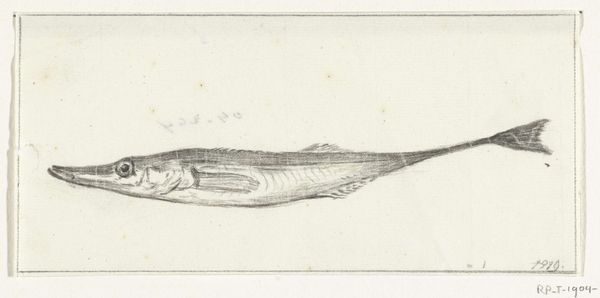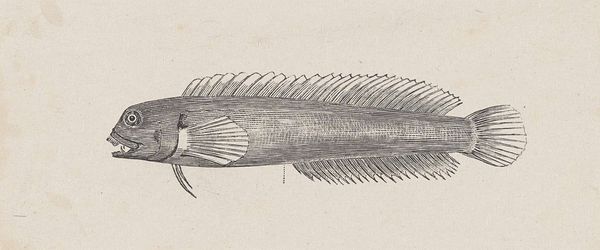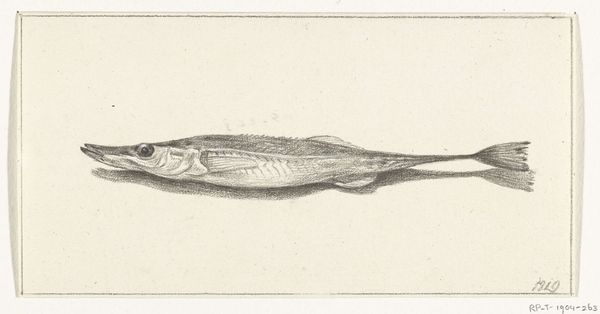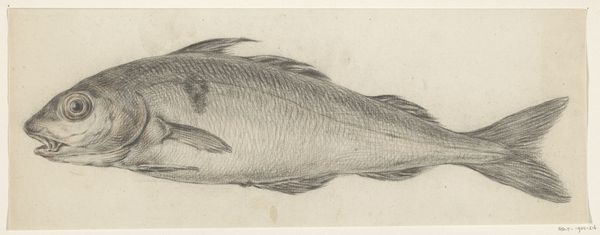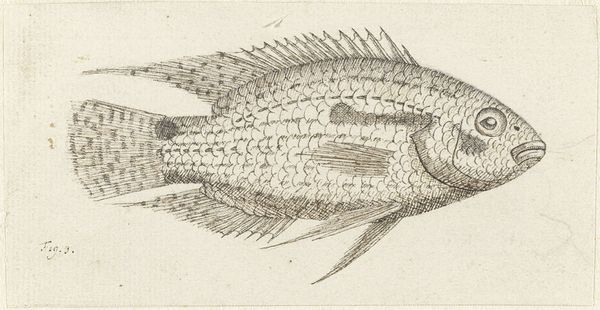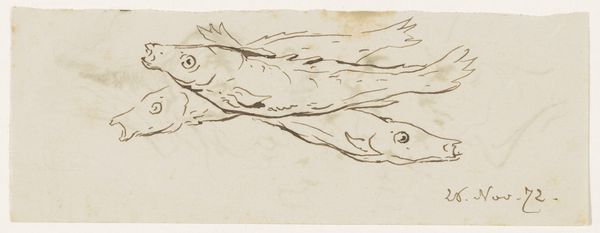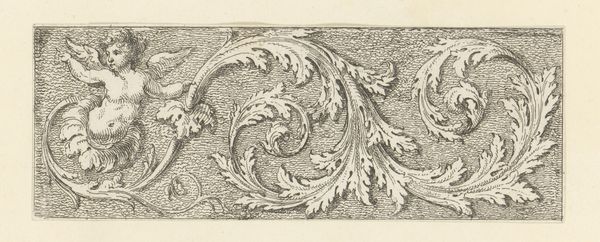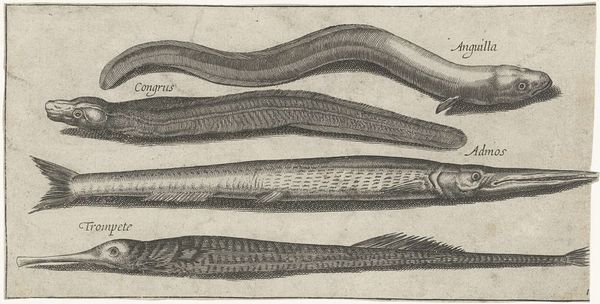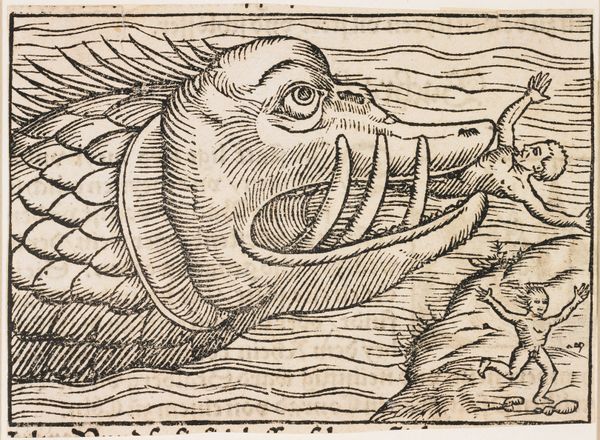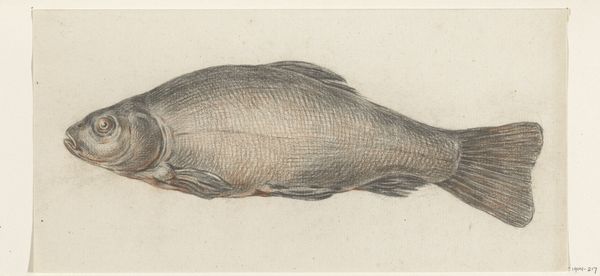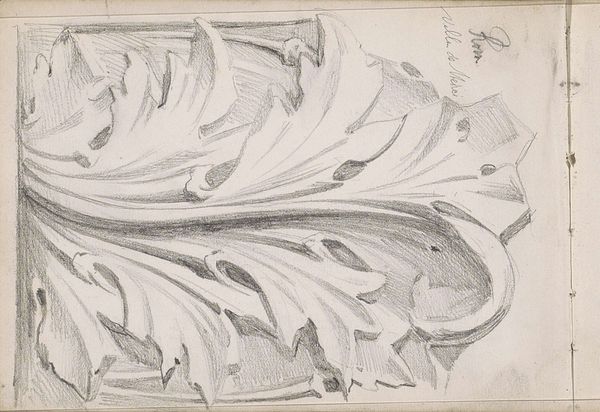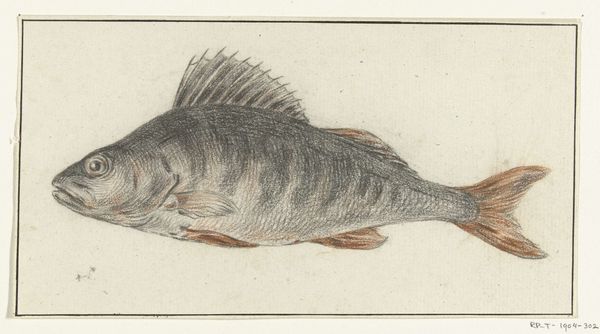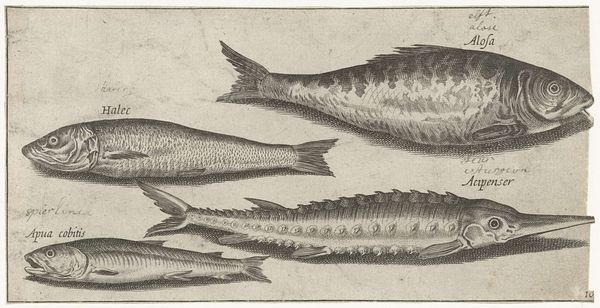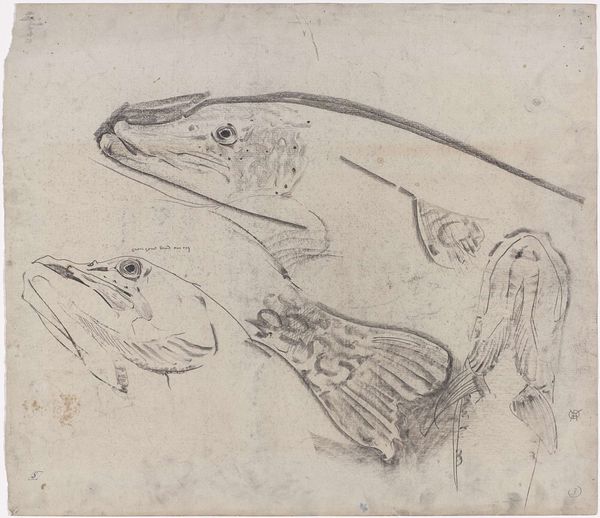
drawing, ink, pen
#
drawing
#
toned paper
#
light pencil work
#
animal
#
pen sketch
#
pencil sketch
#
mannerism
#
figuration
#
11_renaissance
#
personal sketchbook
#
ink
#
ink drawing experimentation
#
pen-ink sketch
#
line
#
pen work
#
sketchbook drawing
#
pen
#
sketchbook art
Dimensions: height 58 mm, width 157 mm
Copyright: Rijks Museum: Open Domain
Curator: We’re looking at "Flying Fish," a drawing rendered in pen and ink by Jacopo Ligozzi. It dates sometime between 1557 and 1626. Curator: It’s rather spectral, isn’t it? The delicate lines give it a dreamlike quality. It’s like glimpsing something from the depths of the imagination rather than the ocean. Curator: Yes, and I think the choice of materials underscores that feeling. Pen and ink on toned paper, it lends itself to precisely this effect. The lines are light, almost ephemeral. Consider Ligozzi’s process: using relatively inexpensive materials to achieve such intricate detail shows a thoughtful approach to resourcefulness. It’s like he's making the most of what he has on hand. Curator: That is quite astute. When considering Ligozzi, let us keep in mind the Mannerist sensibilities of the time period. His choice to depict something so fantastical taps into that era's fascination with the unusual. Furthermore, look at the context of exploration and scientific discovery brewing at the time; that desire to classify, understand, and even dominate nature is there. How did colonialism inform perceptions of "exotic" creatures, real or imagined? Curator: Precisely, and there is an undeniable interest in surface and texture at play. You have scales, and feathered wings—each meticulously rendered through lines and shading. His virtuosity with the pen showcases not only skill but access. Access to both fine materials and also scientific inquiry itself! Someone of a particular social stratum could foster such interests in production. Curator: Absolutely! And beyond class considerations, we must look at representation. Who gets to name and define? Is the Flying Fish just a study, or does it tell a larger tale about humanity’s complicated dance with other species, both factual and fanciful? Curator: Right! Its lasting value lies in the meticulous craftsmanship evident throughout. Look how well Ligozzi manages light and shade even through only pen work. Curator: Looking at it now, I am struck again by the layers of cultural meaning embodied here, the complicated threads connecting scientific curiosity, colonial attitudes, and artistic imagination! Curator: For me, it reinforces an appreciation of the craftsmanship and mindful artistic labor evident when engaging with it.
Comments
No comments
Be the first to comment and join the conversation on the ultimate creative platform.
